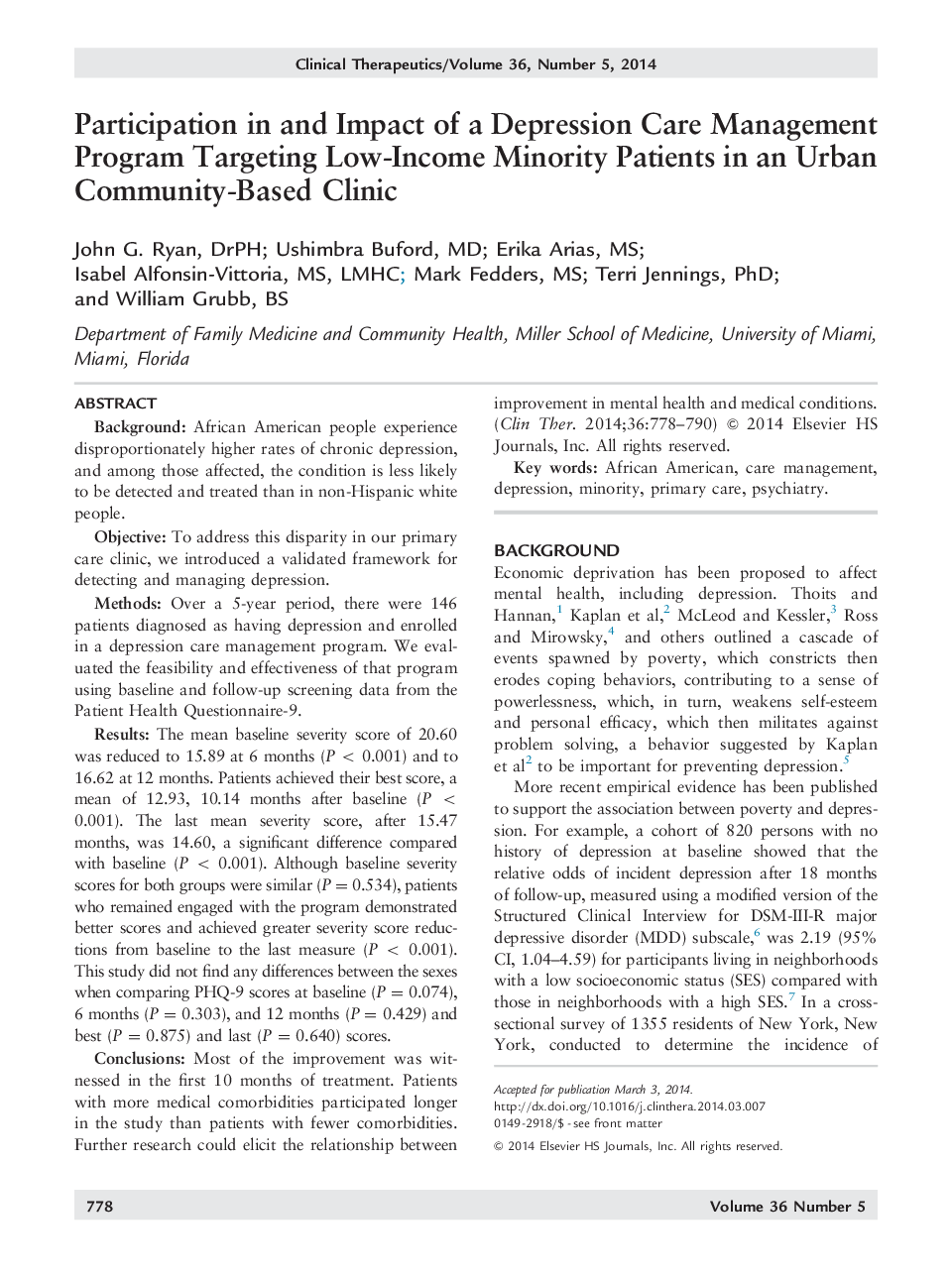| Article ID | Journal | Published Year | Pages | File Type |
|---|---|---|---|---|
| 5825524 | Clinical Therapeutics | 2014 | 13 Pages |
BackgroundAfrican American people experience disproportionately higher rates of chronic depression, and among those affected, the condition is less likely to be detected and treated than in non-Hispanic white people.ObjectiveTo address this disparity in our primary care clinic, we introduced a validated framework for detecting and managing depression.MethodsOver a 5-year period, there were 146 patients diagnosed as having depression and enrolled in a depression care management program. We evaluated the feasibility and effectiveness of that program using baseline and follow-up screening data from the Patient Health Questionnaire-9.ResultsThe mean baseline severity score of 20.60 was reduced to 15.89 at 6 months (P < 0.001) and to 16.62 at 12 months. Patients achieved their best score, a mean of 12.93, 10.14 months after baseline (P < 0.001). The last mean severity score, after 15.47 months, was 14.60, a significant difference compared with baseline (P < 0.001). Although baseline severity scores for both groups were similar (P = 0.534), patients who remained engaged with the program demonstrated better scores and achieved greater severity score reductions from baseline to the last measure (P < 0.001). This study did not find any differences between the sexes when comparing PHQ-9 scores at baseline (P = 0.074), 6 months (P = 0.303), and 12 months (P = 0.429) and best (P = 0.875) and last (P = 0.640) scores.ConclusionsMost of the improvement was witnessed in the first 10 months of treatment. Patients with more medical comorbidities participated longer in the study than patients with fewer comorbidities. Further research could elicit the relationship between improvement in mental health and medical conditions.
